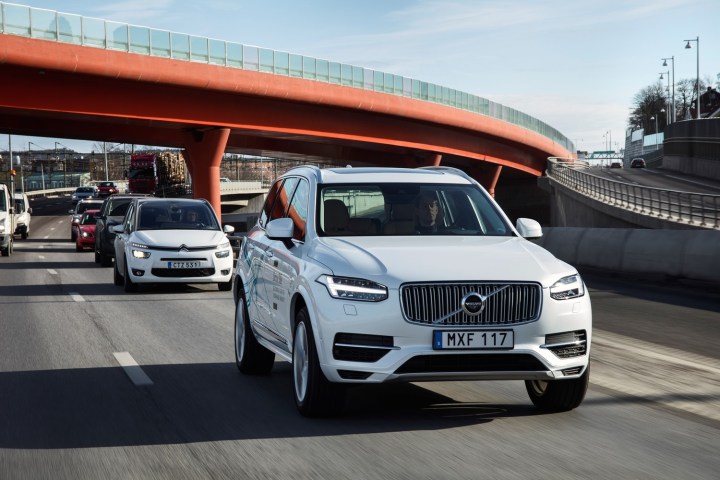
As with the previously-announced “Drive Me” test in Gothenburg, Sweden, Volvo will put self-driving cars in the hands of ordinary drivers in China. Volvo says the experiment will involve up to 100 cars, and will begin negotiations with Chinese cities in the coming months to get permission to put them on the road. China is the world’s largest new-car market, and Volvo is owned by Chinese carmaker Geely.
The cars used in China will likely be similar to the ones earmarked for the Swedish test. Those are modified XC90 crossovers that use an autonomous system Volvo claims is production ready, thanks to its leverage of sensors already installed in production cars. These are actually the second generation of self-driving cars Volvo has built, but they still have their limitations, including the inability to drive in inclement weather.
Volvo is interested in self-driving cars largely for their assumed safety benefits. The company claims no one will be killed or seriously injured in a new Volvo by 2020, and believes the increasing array of autonomous systems offered in its cars will help achieve that goal. Taking humans out of the equation will have a major benefit, as 90 percent of accidents are caused by human error, Volvo CEO Håkan Samuelsson said in a statement.
In China in particular, Volvo believes self-driving cars will be beneficial. Because they drive more consistently than humans, autonomous vehicles are expected to be more efficient. That could help with China’s notorious air pollution, as well as keep traffic moving more smoothly, Volvo says.
While it tests cars in China and Sweden, Volvo also plans to make the semi-autonomous Pilot Assist II system standard on the 2017 XC90 and S90. Somewhat like Tesla’s Autopilot system, it combines autonomous steering with adaptive cruise control, essentially allowing a car to drive itself through highway traffic. Volvo likely views this as a first step toward more advanced systems, but their deployment will probably depend on resolution of the legal issue of who is at fault when an autonomous car crashes.
Editors' Recommendations
- Tesla Autopilot vs. full self-driving: What’s the difference?
- Beleaguered robotaxi startup Cruise lays off quarter of workforce
- Cruise woes prompt production halt of fully driverless van
- Cruise’s robotaxi service suspended by California regulator
- Dubai Police to deploy driverless patrol cars with AI smarts


